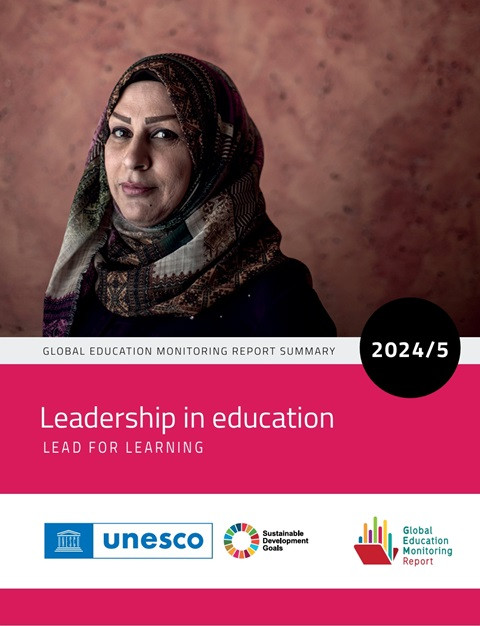
GCED Basic Search Form
Quick Search
You are here
Resources

Education leaders shape the direction of their teams, institutions and countries.There is no one way to lead, making it difficult to measure leaders’ impact. Yet good school, system and political leaders are acutely needed to help drive education in the right direction, as the challenges remain daunting.
The concept of school leadership has played out differently across countries and over time. The scope to exercise functions and make decisions, the working context and personal backgrounds shape leaders’ actions. Moreover, there is growing recognition of the need to shift the emphasis on administrative and bureaucratic functions to education outcomes, such as learning, inclusion and well-being.
The 2024/5 Global Education Monitoring Report assesses progress towards the 2030 targets and shows that, while more children are in school and completing secondary education than ever before, there is stagnation in many areas. Leadership is central to addressing this. There are no schools that improve student outcomes without a good leader showing the way. Building on a review of legislation and policies on the selection, preparation and working conditions of school principals in 211 education systems, the report discusses policy levers to attract and retain talented leaders.
Leadership’s potential is not limited to school leaders: it extends to individuals in positions elsewhere in the education system as well as outside of it, from assistant principals, teachers and students, when leadership is shared, to political leaders, civil society, international organizations, unions and the media, who help shape education goals.
The report calls for efforts to develop leaders in four key leadership dimensions so that they can set expectations, focus on learning, foster collaboration and develop people. For these dimensions to be realized, people in leadership positions should be trusted and empowered; recruited through fair hiring practices; supported to grow; and encouraged to develop collaborative cultures. The report also calls for investment in education officials’ capacity to serve as system leaders, with a particular emphasis on instructional leadership and quality assurance.
